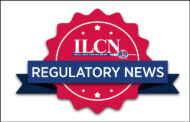
Matthew Z. Guo, BA
The US Food and Drug Administration’s decision not to approve Eli Lilly’s application for its anti-PD-1 monoclonal antibody (sintilimab) has been met with intriguing controversy.1 The application for use for patients with NSCLC was based on single-country data from the ORIENT-11 trial.2
Proponents of the FDA Oncologic Drugs Advisory Committee’s (ODAC) decision agree with cited concerns regarding study population comparability and trial design.
Opponents of the decision say approval of so-called “me-too” drugs may offer improved accessibility and financial benefits for patients if the cost of these agents undercut established agents with the same indication
While this is a nuanced discussion, it is imperative that we keep the best interests of our patients at the heart of the matter. In this perspective piece, we detail our thoughts as immunotherapy clinical trialists in support of the ODAC decision regarding sintilimab.
Scientific discovery and innovation must apply to our diverse population of patients. We also must maintain consideration for non-therapeutic implications, including long-term financial toxicity and access to drugs and clinical trials for all our patients.

Susan C. Scott, MD, MA
The main concerns discussed in ODAC’s hearing regarding ORIENT-11 lie in the trial’s applicability and design. This randomized trial enrolled nearly 400 patients with advanced non-squamous NSCLC at 47 centers across China and demonstrated improved progression-free survival (HR 0.48) with chemotherapy plus sintilimab compared to chemotherapy plus placebo in the first line treatment setting.2 However, overall survival was not part of the formal statistical design.
Importantly, the study population of Chinese patients was not representative of the diverse US population the FDA serves. The cohort studied was majority male (76.2%) with a median age of 61. In contrast, the median age of lung cancer patients in the US is 70, and nearly 50% of patients are female.3,4 Cultural differences regarding complementary medicine, diet, and environmental exposures, while not directly quantified in the study, may impact the efficacy of immunotherapy as well.
Additionally, despite crossover study design, patients in the control arm of ORIENT-11 solely received platinum-pemetrexed therapy, even though pembrolizumab had emerged as standard first-line therapy in the US at the time of study accrual. This lack of access to standard of care therapy does not align with oncology study design in the US. These concerns over study comparability ultimately led to the ODAC decision regarding applicability of these results to the patient population we care for in the US.
Yet sintilimab, as a me-too drug, may truly have efficacy similar to pembrolizumab in treating NSCLC. Nevertheless, FDA approval should hinge on the quality and applicability of the data provided as well as the novelty of the trial design. With no direct comparison to the standard of care and with limited resources to review applications received, we believe the ODAC decision not to approve sintilimab recommendation was justified.

Kristen A. Marrone, MD
As one of the FDA’s missions is drug innovation, FDA drug review should prioritize therapeutics that have the potential to advance the field. The rise of biosimilars and me-too drugs in the era of combination immunotherapy and targeted therapy burden clinical trialists and the FDA while failing to answer novel scientific questions.5
Specifically, focusing on the approval of me-too drugs diverts finances, patients, and time from the development of novel therapeutic agents and translational efforts that may provide greater therapeutic benefit for patients.
It should also be noted that the COVID-19 pandemic has further limited resources available to review new drug applications and conduct clinical trials, such that the resources needed for these me-too drug studies may further compromise our capacity to generate progress in the treatment of advanced lung cancer.
As we move forward, international collaborations between sponsors of approved anti-PD-(L)1 agents and sponsors of novel therapeutics may allow for better use of resources and hopefully greater benefit for patients.5
Proponents of sintilimab approval will note potential benefits to patients, clinicians, and investigators with improved access and cost. Eli Lilly was purportedly prepared to price sintilimab as much as 40% lower than other current anti-PD-(L)1 agents, each of which costs approximately $150,000 per year.6
Financial toxicity for long-term cancer survivors and the healthcare system and sparse treatment options post-immunotherapy progression are real concerns for patients with lung cancer in the current era of immunotherapy. Me-too drugs may provide other benefits compared to the parent drug, such as improved side effect profiles or different drug-drug interactions or less challenging resistance mechanisms.7
Importantly for Eli Lilly, approval of an in-house PD-(L)1 agent like sintilimab could have streamlined their clinical development of immunotherapy combinations. While these factors were not priority considerations in the ODAC deliberation, they do represent critical barriers to successful care for our patients and should be addressed in future clinical trials.
As clinical trialists, our mission is to innovate and advance the field so that we can provide the greatest benefit to our patients. Clearly the approval of new drugs can benefit patients from the perspective of both access and cost. Yet we have seen lackluster uptake of newer me-too drugs, and these agents are unlikely to be incorporated into standard-of-care protocols without evidence of superior efficacy, improved tolerability, or a markedly lower price tag. For example, cemiplimab, another anti-PD-(L)1 agent, received FDA approval in 2021 for first-line monotherapy in advanced NSCLC;10 yet as head-to-head trials have not been performed, it is used far less than other more established anti-PD-(L)1 agents.8
Globally, the use of anti-PD-(L)1 agents has increased rapidly, with sales of each individual agent typically starting in high-income countries such as the US, France, and Germany before spreading elsewhere. However, there is still significant disparity in immunotherapy access and use when comparing high-income to low-income countries, even with first generation agents such as pembrolizumab, which have been approved since 2016.8
High price is a barrier to more equitable use of immunotherapy agents, yet decreased costs of me-too immunotherapy agents may not actually yield a practical solution. A recent cross-sectional analysis of cancer medicines deemed “essential” by oncologists across the globe found that while pembrolizumab was the most important cancer drug in high-income countries, it was not even listed amongst the top 20 important drugs for low-income countries.9 The study also found that financial barriers existed in low-income countries even for older, generic cytotoxic chemotherapies.9
In addition to cost, other factors contribute to global disparities in cancer care such as decreased access to high quality PD-L1 and genomic testing, limited personnel and space, fragile supply chains, and prioritization of curative regimens over palliative regimens. In health systems in low-income countries, these may all be factors that need to be addressed before any immunotherapy agent can become an “essential” drug.
Rather than focusing resources on single country approval of me-too drugs to bridge this gap, we would advocate for greater international collaboration for upcoming immunotherapy combination trials with the inclusion of patients from low-income countries. If successful, this could lead to more equitable use of cancer immunotherapeutics by increasing access, diversifying patient populations, and ultimately promoting coordinated worldwide regulatory approval.
Additionally, while me-too drugs such as sintilimab may not inherently have any significant weaknesses and may indeed provide various benefits to patients, we believe that adhering to a rigorous and generalizable trial design is critical to ensuring the integrity of our FDA drug-approval process. As clinical trialists, we must continue to prioritize clinically relevant trial designs that address rapidly changing standards of care.
This will require a concerted and dedicated effort across our entire research practice to develop an approach to trials that can adapt and remain applicable for the patients we care for. In our diverse society and with a rapidly expanding armamentarium of therapies, we hope that we can keep the primary focus on innovation that provides the greatest therapeutic benefit to our patients.
References
- 1. FDA Oncologic Drugs Advisory Committee. BLA 761222, Sintilimab, Innovent Biologics (Suzhou) Co., Ltd.; 2022.
- 2. Yang Y, Sun J, Wang Z, et al. Updated Overall Survival Data and Predictive Biomarkers of Sintilimab Plus Pemetrexed and Platinum as First-Line Treatment for Locally Advanced or Metastatic Nonsquamous NSCLC in the Phase 3 ORIENT-11 Study. J Thorac Oncol. 2021;16(12):2109-2120. doi:10.1016/j.jtho.2021.07.015
- 3. Jason Harris. ODAC Recommends New Trial Data of Sintilimab in US Population of Frontline NSCLC. Published February 10, 2022.
- 4. Key Statistics for Lung Cancer. Published Feb. 14, 2022.
- 5. Beaver JA, Pazdur R. The Wild West of Checkpoint Inhibitor Development. N Engl J Med. Published online Dec. 15, 2021:NEJMp2116863. doi:10.1056/NEJMp2116863
- 6. Max Gelman. FDA advisors recommend against approving Eli Lilly’s PD-1, casting shadow over future of China-made cancer drugs. Endpoints News. Published Feb. 10, 2022.
- 7. Razelle Kurzrock. The Argument in Favor of ‘Me-Too’ Drug Approvals for Cancer Care. Published online June 16, 2021. doi:10.1200/ADN.21.200633
- 8. Upadhaya S, Neftelinov ST, Hodge J, Campbell J. Challenges and opportunities in the PD1/PDL1 inhibitor clinical trial landscape. Nat Rev Drug Discov. Published online Feb. 10, 2022: d41573-022-00030-00034. doi:10.1038/d41573-022-00030-4
- 9. Fundytus A, Sengar M, Lombe D, et al. Access to cancer medicines deemed essential by oncologists in 82 countries: an international, cross-sectional survey. Lancet Oncol. 2021;22(10):1367-1377. doi:10.1016/S1470-2045(21)00463-0
- 10. Sezer A, Kilickap S, Gümüş M, et al. Cemiplimab monotherapy for first-line treatment of advanced non-small-cell lung cancer with PD-L1 of at least 50%: A multicentre, open-label, global, phase 3, randomised, controlled trial. The Lancet. 2021;397(10274):592-604. doi:10.1016/S0140-6736(21)00228-2
Disclosures
Dr. Marrone has consulted for AstraZeneca, Janssen, Mirati, and Amgen, and received grant funding from Bristol Myers Squibb, and Mirati.


